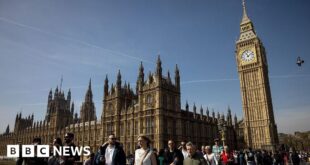There has been some progress by companies that have rigorous targets. In a report last month, Science Based Targets, which was started by the environmental groups and hundreds of businesses brought together by the United Nations, said the 338 large companies around the world for which it had sufficient emissions data collectively reduced their emissions by 25 percent between 2015 and 2019.
Often large companies in the same industry have very different records.
For example, Walmart discloses its targets for emissions reductions and the progress it has made to the Carbon Disclosure Project, including a goal for emissions from its suppliers, and its plan has been vetted by Science Based Targets. But Costco doesn’t expect to have commitments to reduce emissions until the end of next year. Costco executives declined to comment.
Netflix is often compared to technology giants like Google and Microsoft. But Netflix has yet to set a target for reducing the emissions caused by its offices, production activities and the computer servers it uses. “Climate action is important, and we’ll announce our plans in the spring, which will include targets based on climate science,” the company said in a statement.
Slashing emissions is difficult. Businesses must reliably measure how much carbon dioxide and other greenhouse gases they are responsible for. Then companies have to find cleaner energy sources without hurting their operations. Where they can’t find cleaner substitutes, businesses often pay others to reduce emissions or remove carbon from the atmosphere.
The task gets even harder when companies begin the process of reducing so-called Scope 3 emissions — pollution caused by suppliers and customers. At oil companies, for example, Scope 3 would include emissions from cars that use gasoline.
BlackRock, with $8.7 trillion of assets under management, including stakes in many companies, clearly faces a daunting task. The company doesn’t directly own most of the shares or bonds it buys — it manages them for pension funds, other corporations and individual investors — limiting how much climate activism it can pursue. In addition, most of its investment products track indexes like the S&P 500, so it inevitably ends up managing stocks of fossil fuel companies.
Many Wall Street firms have made pledges to get to net zero emissions from their lending and other financial activities but have not made clear whether that goal applies to the stocks and bonds they manage for customers. BlackRock’s decision to include all the assets it manages could pressure other financial giants to make similar commitments, but it could rankle fossil fuel industries and their political supporters in Congress.
Source link


